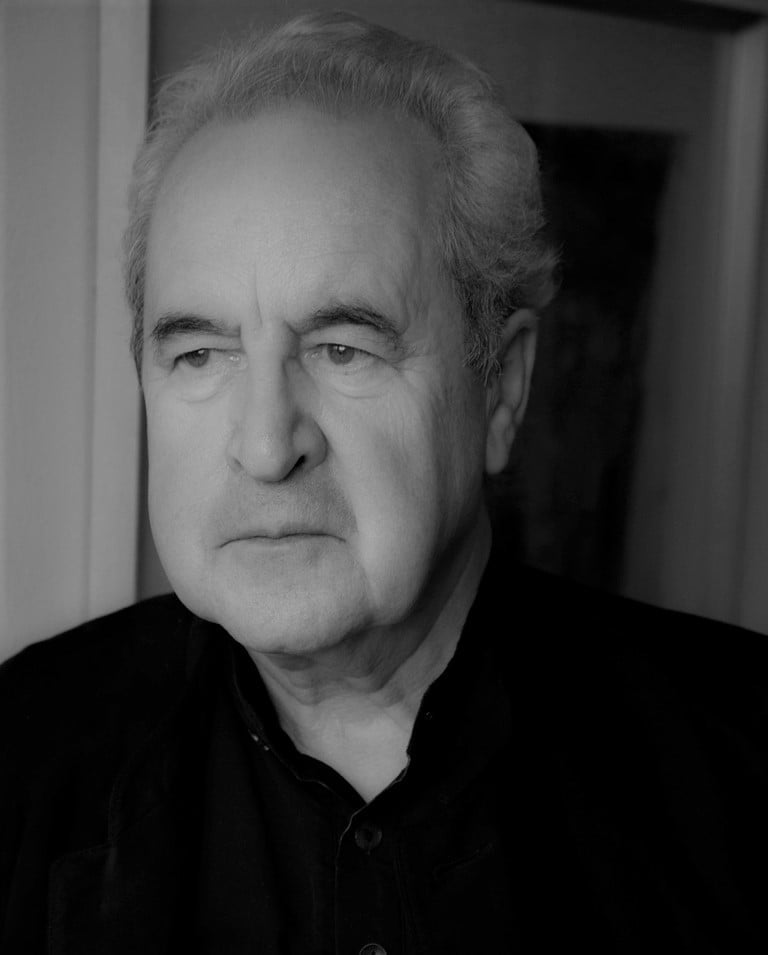
John Banville
The Irish writer and literary critic John Banville was born in Wexford in 1945. He began writing short prose at the age of fifteen. After college and a year in London, he worked as a journalist in Dublin.
He made his debut in 1970 with a collection of short stories under the title »Long Lankin« but his literary breakthrough came with his third novel »Doctor Copernicus« (1976). Together with »Kepler« (1981) and »The Newton Letter« (1982), the novel is part of the »Revolution Trilogy« about famous scientists. In his »Frames Trilogy« (1989-1995), Banville turns to the world of art and tells the story from the perspective of the murderer Freddie Montgomery. The trilogy highlights Banville as a mature author who creates a dark narrative space with exceptional flair, unwinds an intricate plot with impressive images, and casts a spell of beauty and violence over the reader. His literary models are also identified through his texts: Vladimir Nabokov, Samuel Beckett, James Joyce. He himself also claims to take inspiration from William Butler Yeats, Henry James, whose »Portrait of a Lady« he built upon with »Mrs Osmond« (2017), and Heinrich von Kleist, whose »Amphitryon« was the stimulus for his novel »The Infinities« (2009). Banville’s novel »The Sea« (2005) was awarded the Man Booker Prize 2005. The plot centres on an ageing art historian who returns to the place of his childhood on the Irish coast after the death of his wife. In monologues that bring back his memories of summers full of drama and eroticism the lines between reality and fantasy become blurred. The Booker jury praised the novel as a »masterly study of grief, memory and love recollected«. The story was eventually made into a film in 2013. His ode to the Irish capital, »Time Pieces« (2016), is both a personal city guide and an autobiographical text about a city that was a place of longing for Banville as a child. Under the pseudonym Benjamin Black, Banville has written a crime series about Dublin pathologist Quirke (2007-2016), and under his real name, he recently published »Snow« in 2020, the prelude to a new crime series about Dublin’s Inspector Strafford.
John Banville has been awarded a number of literary prizes, including the Guardian Fiction Award, the Irish Book Award, the Franz Kafka Literature Prize, the Austrian State Prize for European Literature, and the Premio Príncipe de Asturias de las Letras. He is a member of a number of associations including the American Academy of Arts and Letters, and the Royal Society of Literature. Between 1988 and 1999 Banville was head of the literary section of the »Irish Times«, and has been a regular contributor to »The New York Review of Books« since 1990. He lives in Dublin.
Das Buch der Beweise
Kiepenheuer & Witsch
Köln, 1991
[Ü: Dorle Merkel]
Doktor Kopernikus
Fischer
Frankfurt/Main, 1999
[Ü: Bernhard Robben]
Geister
Kiepenheuer & Witsch
Köln, 2000
[Ü: Christa Schuenke]
Die See
Kiepenheuer & Witsch
Köln, 2006
[Ü: Christa Schuenke]
Der silberne Schwan
(Pseudonym:
Benjamin Black)
Kiepenheuer & Witsch
Köln, 2009
[Ü: Christa Schuenke]
